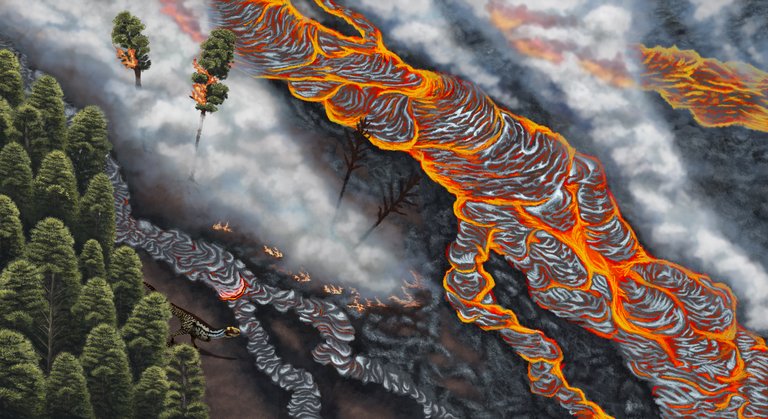Vulcanism wasn't the last cause of dinosaur loss.

Scientists have discussed the influence of volcanoes on dinosaur loss. In fact, before the impact of the asteroid that caused the Chicxulube crater, there were massive eruptions in India. This phenomenon is known as Deccan vulcanism and, due to the influence of released gases and ashes on the climate, scientists believe that it also influenced living things. So far, however, it is unknown whether this impact was more deadly than the impact of the asteroid or vice versa.
Now, the study of the fossil molecules of the ancient peatlands of the United States reveals that some researchers have illuminated the temperatures between eruptions and the impact of the asteroid. Thus, they have observed that massive eruptions occurred 30,000 years before the impact, which coincides with a cooling of the climate of about 5ºC. According to the researchers, the eruptions caused the gases released into the atmosphere to prevent the arrival of solar rays on the surface of the Earth.
This cold weather lasted about 10,000 years. Thus, 20,000 years before the asteroid impact, the temperature rose again and reached levels before the eruptions began. Therefore, it is concluded that although the eruptions affected living beings, they did not influence the disappearance of the dinosaurs so much.
The impact of the asteroid, on the other hand, caused a total disaster: cooling, fires, tsunamis, earthquakes… Researchers have proposed that the asteroid was the last cause of dinosaur loss. The study has been published in the journal Science Advances.
Buletina
Bidali zure helbide elektronikoa eta jaso asteroko buletina zure sarrera-ontzian








